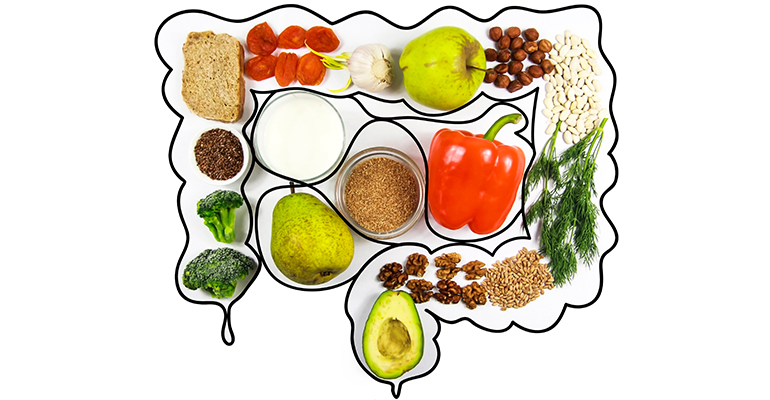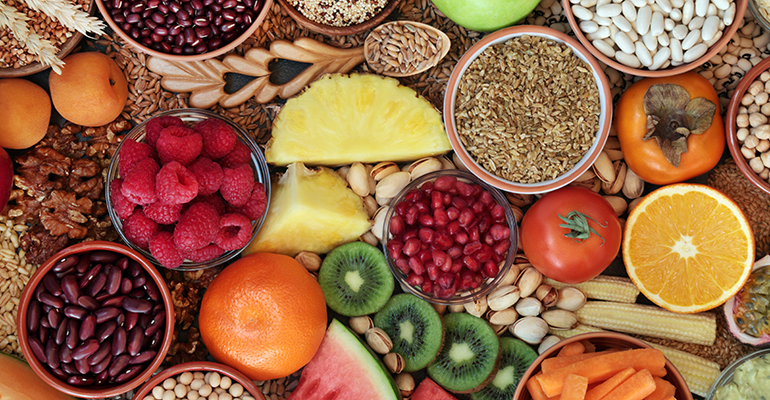News
Dietary fibre releases centre on gut health and personalisation in 2023
14 Feb 2023
As indigestible plant-based releases evolve, dietary fibre solidifies its position in the health and wellbeing space.
Dietary fibre continues to grow in traction as its garners a reputation among consumers as a beneficial dietary component for gut health and the microbiome. “Fibre has been evolving for the consumer, from a macronutrient that provides intestinal regularity and satiety, to a source of broader health and wellbeing benefits,” Marietta Sayegh, nutrition scientist at Tate & Lyle told Ingredients Network.

Dietary fibre is largely accepted as including carbohydrates with three or more monomeric units. The increasing presence and popularity of fibre in food and beverage formulations in recent years represents a growing body of research that explores the advantages of fibre on health.
“Consumers are becoming more aware of these benefits because of recent and emerging science, unlocking new findings, mainly around the prebiotic effect [that] fibre can have, which contributes to gut health,” Sayegh adds.
Fibre perceptions revolve around health and nutrition
Purchasing healthy food is the most important factor among almost a third of European consumers (32%), Limagrain revealed in a 2022 study. Taste, meeting basic needs and affordability followed.
While consumers are aware of dietary fibre, they typically believe they consume more than they do and also struggle to identify a variety of types of dietary fibre. The main association the study found consumers make with dietary fibre is its perceived link to health benefits.
Growing gut health claims advance the dietary fibre segment
“There has also been a rise in products featuring a ‘gut health’ message on their packaging,” says Sayegh. Products containing a gut health message often either claim the product contains probiotics as added ingredients or fermented foods and prebiotic fibres.
 © AdobeStock/Poligoone
© AdobeStock/Poligoone
Described as the ‘fibre gap’, a lack of fibre in diets worldwide shows signs of a potential U-turn as the benefits and awareness of a healthy gut continue to grow. “Consumers globally don’t meet the recommended daily consumption of dietary fibre,” says Sayegh. As a result, consumers look for products containing ingredients such as probiotics, prebiotics and fibre that support gut health.
The Food and Drink Federation launched its Action on Fibre campaign in 2022 in an effort to bridge the fibre gap between intake and recommendations. Enlisting the commitment of global brands in the fibre industry, the campaign strives to achieve this by formulating products that contribute to making dietary fibre appealing, simple and mainstream.
Understanding how gut health relates to overall health is increasing among today’s global consumers. “Gut health is a key driver for growth in the adoption of fibre in formulations and a trend that food manufacturers must consider in their innovation pipelines,” says Sayegh.
Bridging the fibre gap with health claims
Dietary fibre is set to shift in 2023, shaping food and beverage trends and releases by emphasising health and wellness benefits. Personalised nutrition is attracting a lot of attention as consumers are interested in food and beverages tailored to their needs to deliver optimum health and wellness.
The Covid-19 pandemic has accelerated consumers’ interest in learning how nutrition affects immunity. “Consumers are more interested and invested in healthy eating,” says Sayegh.
“We predict more developments around gut health and the microbiome will be seen in 2023,” says Sayegh. Fibre helps support gut health which also links to benefits in metabolic health, mood and sleep, “all areas of consumer interest”, Sayegh adds.
 © AdobeStock/marilyn barbone
© AdobeStock/marilyn barbone
“We need to remember that consumers are not getting enough fibre daily, so bridging the fibre gap will continue to be a hot area for product launches.”
In 2023, fibre fortification might enable specifically formulated products to meet specific consumer needs. Examples of where this may take shape are food and beverage formulations that increase fibre intake and cater to particular demographics and life stages, such as women’s health and elderly health.
“The fermented foods segment has been a highlight in new product launches, as it naturally offers a probiotic benefit.” Nutritional bars, beverages, cereals and dairy products are other relevant categories that are experimenting with their positionings in the gut health space. “The fibre industry is well positioned to help them through fortification strategies,” Sayegh adds.
